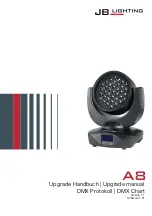
3-
8
Keysight 85033E User’s and Service Guide
Use, Maintenance, and Care of the Devices
Gaging Connectors
3-
When to Gage Connectors
Gage a connector at the following times:
• Prior to using a device for the first time: record the pin depth measurement
so that it can be compared with future readings. This serves as a good
troubleshooting tool when you suspect damage may have occurred to the
device.
• If either visual inspection or electrical performance suggests that the
connector interface may be out of typical range (due to wear or damage, for
example).
• If a verification device is used by someone else or on another system or
piece of equipment.
• Initially after every 100 connections, and after that as often as experience
indicates.
Gaging Procedures
Gaging Male 3.5 mm Connectors
1.
Select the proper gage for your connector. Refer to
for gage part numbers.
2.
Inspect and clean the gage, gage master, and device to be gaged. Refer to
“Visual Inspection” on page 3-3
and
“Cleaning Connectors” on page 3-5
3.
Zero the connector gage (refer to
a.
While holding the gage by the barrel, and without turning the gage
or the device, screw the male gage master connecting nut onto the
male gage, just until you meet resistance. Connect the nut finger
tight. Do not overtighten.
b.
Use the torque wrench recommended for use with the kit to tighten
the connecting nut to 90 N-cm (8 in-lb). Refer to
for more information.
c.
As you watch the gage pointer, gently tap the barrel of the gage to
settle the reading.
The gage pointer should line up exactly with the zero mark on the
gage. If not, adjust the zero set knob until the gage pointer lines up
exactly with zero.
d.
Remove the gage master.
4.
Gage the device connector (refer to
Always hold a connector gage by the gage barrel, below the dial indicator. This gives the best
stability, and improves measurement accuracy. (Cradling the gage in your hand or holding it by
the dial applies stress to the gage plunger mechanism through the dial indicator housing.)
















































